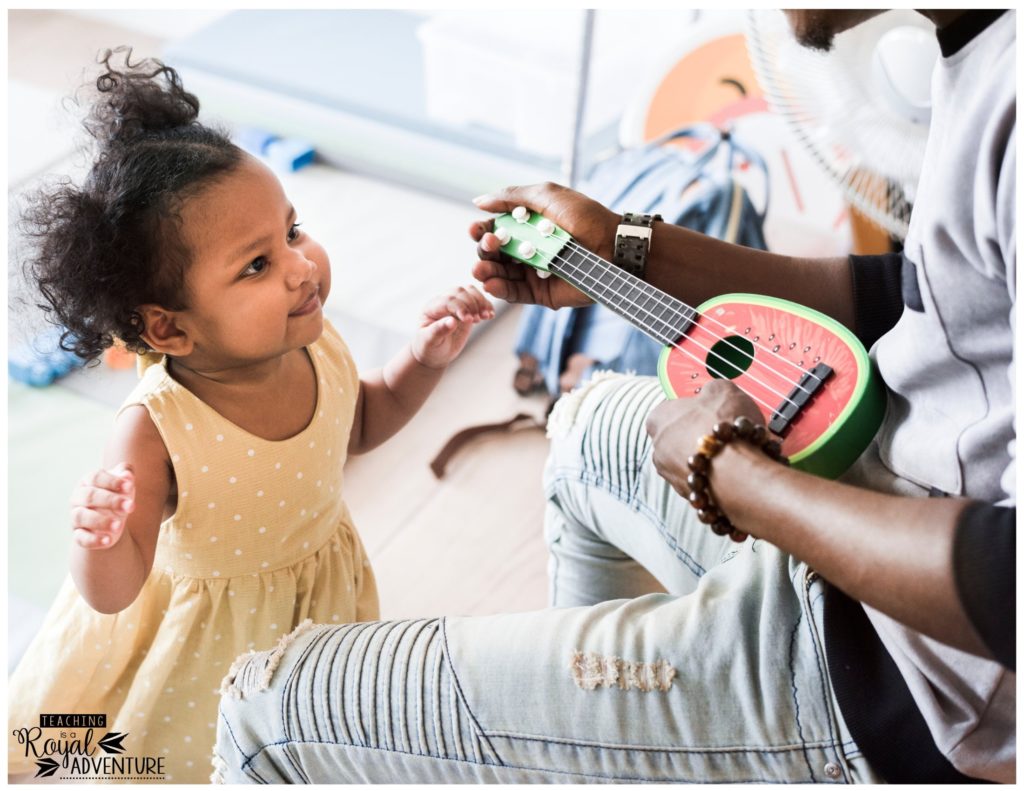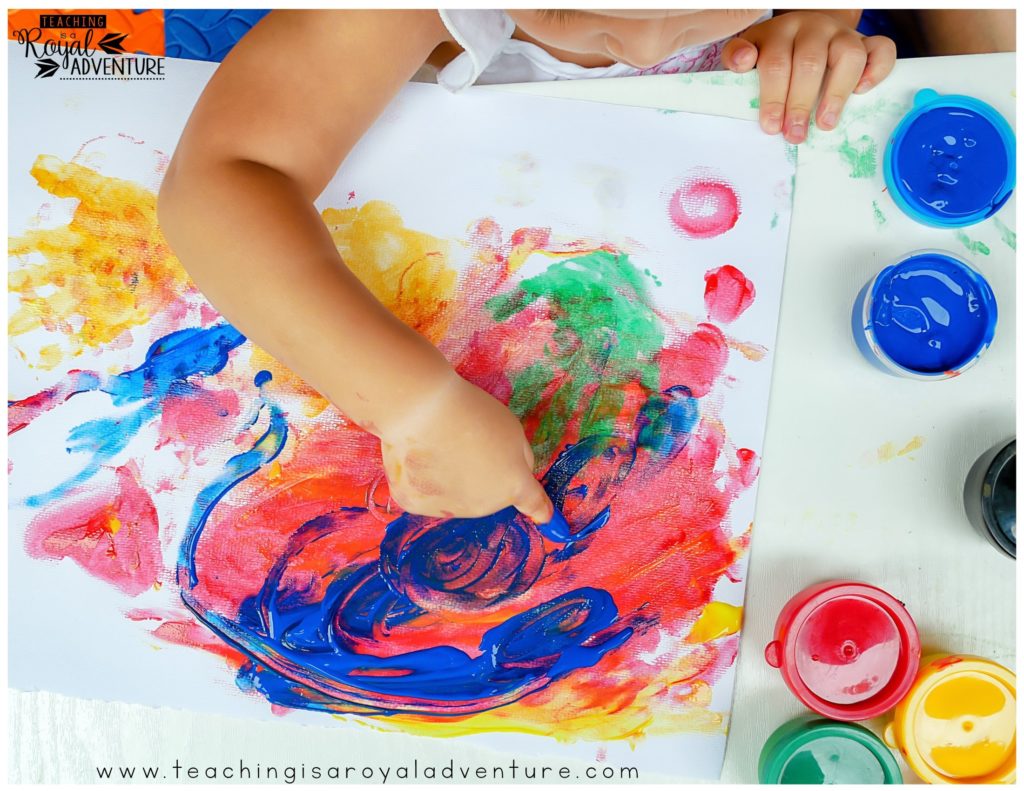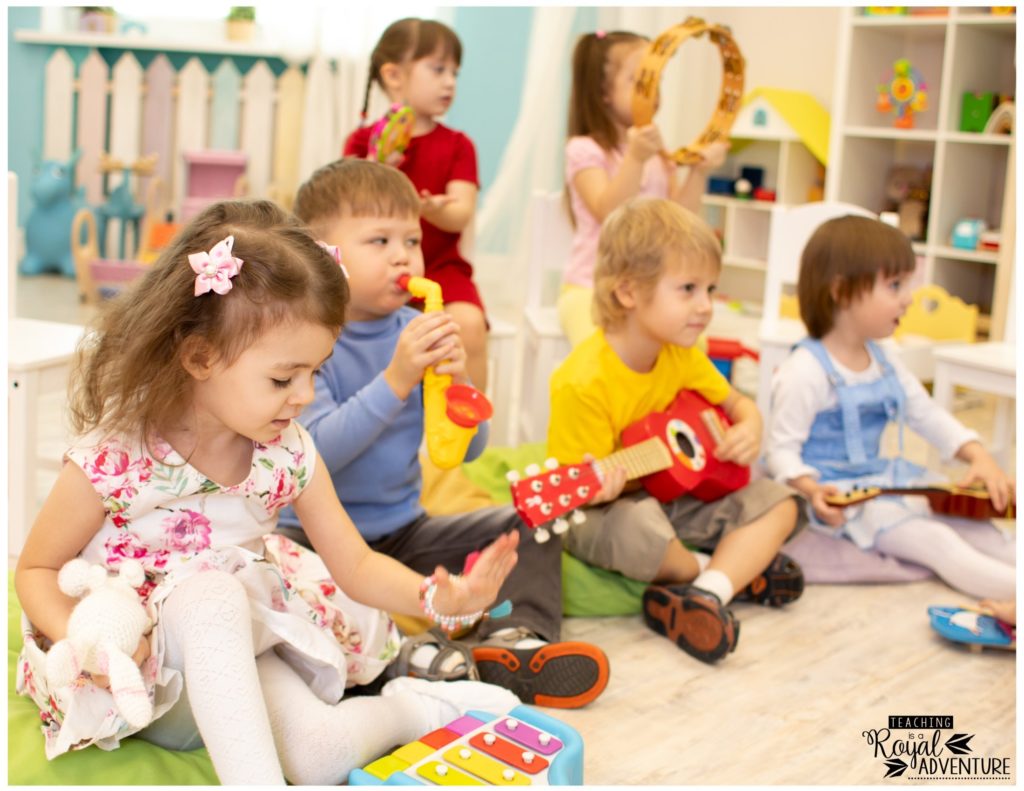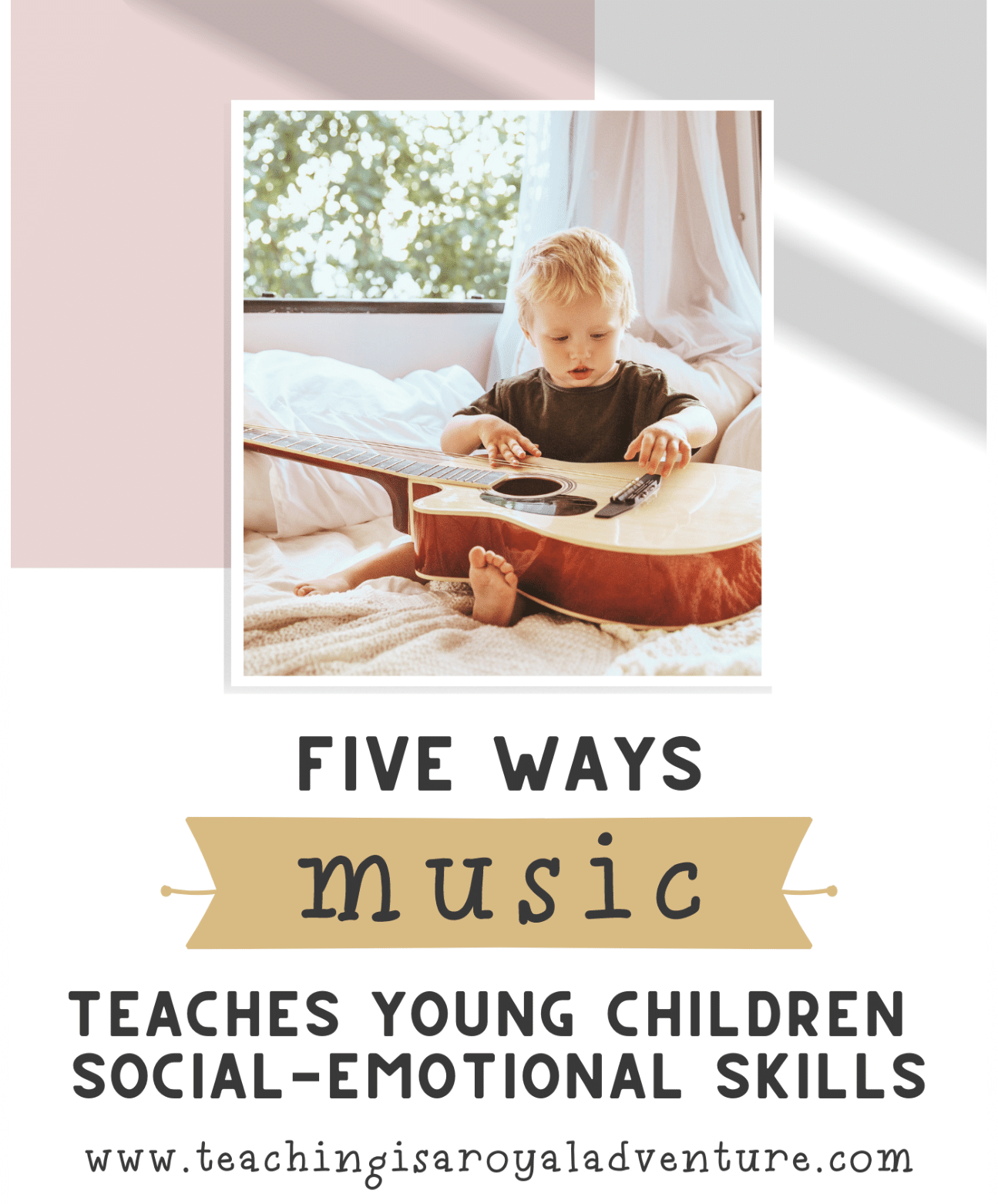Music moves preschoolers. They clap their hands, stomp their feet, and dance around almost every time they hear music. Music gets kids up and moving around but it also moves preschoolers to experience emotions. It’s one of the reasons why music can be used in the preschool classroom and at home to support social-emotional development in young children, but it’s not the only reason. Here are five ways that music supports social-emotional learning in young children.

- Music helps preschoolers understand, express and label emotions.
Preschoolers are in the early stages of learning how to identify and appropriately express their emotions. Listening to music and actively participating in musical activities supports their learning by giving them endless examples of what certain feelings “sound” like and an opportunity to express their own emotions by improvising with music and movement.
Teaching Tip: Pick different instrumental pieces to listen to with your preschooler. While you listen, identify the emotion and use your whole body to express that emotion. (That’s just a fancy way of saying: DANCE!) Here are a few to get you started and the emotion the music might express.
- Berceuse by Chopin (Calm or Peaceful)
- Spring by Vivaldi (Happy or Joyful)
- Mars by Gustav Holst (Scared or Brave or both!)
- Sabre Dance by Khachaturian (Stressed or Hurried)
Traditional classical music not your thing? The soundtracks to favorite kids’ movies offer an excellent resource, too. Try the soundtrack to Cars by Randy Newman:
- McQueen’s Lost (Fear)
- Bessie (Lazy, Slow, Sluggish)
- Tractor Tipping (Playful)
- McQueen and Sally (Happy)
- Goodbye (Sad)

2. Music helps preschoolers learn self-regulation skills: Preschoolers need lots (and lots!) of practice in context to learn to respond appropriately in various situations, including handling their emotions and controlling their behaviors and bodies. Musical games for preschoolers give them lots of practice that children and adults both love. In the school years, strong self-regulation skills help children pay attention, follow directions, stay focused on the task and persist even when it gets difficult.
[bctt tweet=”Preschoolers need lots (and lots!) of practice in context to learn to respond appropriately in various situations, including handling their emotions and controlling their behaviors and bodies.” url=”http://yourwebsite.com/you-can-even-use-long-urls-here“]
Teaching Tip: Want preschoolers to practice paying attention and following directions? Sing and play “Head, Shoulders, Knees & Toes” or the “Hokey-Pokey.” In addition, musical Stop and Go games also gives children opportunities to practice stopping and moving their bodies to musical cues. Pick “emotional” music from above and challenge the kids to move to the music expressing the emotion, too. Or support their growing confidence by asking for their ideas on how to move to the music, such as stomping, skipping, jumping. After each “stop,” ask for another movement idea!
3. Music helps preschoolers learn and practice relationship skills. Preschoolers learn valuable friendship lessons through music. When children actively listen to music in order to follow directions, they are learning the value of listening closely and can apply that to listening closely to what a friend says. When they create music in a group of other children, preschoolers discover how taking turns, sharing, and playing together can be fun and create positive feelings for everyone.
Teaching Tip: Get out the instruments and make music. Talk about sharing and turn taking. Ask for ideas on what song to sing. Point out the positive relationship behavior that you see. For example, celebrate when a child who struggles with sharing gets a turn with a favorite instrument and then passes it onto the next child. Highlight when another child shouts, “Great idea,” in response to someone else’s idea.
4. Music teaches preschoolers inclusivity. When children listen to music from various cultures, they will recognize the differences in musical sounds and love learning about the similarities between unfamiliar instruments and those more common in their culture and community. Music highlights how we are different yet the same and leads children to love both!
[bctt tweet=”Music highlights how we are different yet the same and leads children to love both!” url=”http://yourwebsite.com/you-can-even-use-long-urls-here“]
Teaching Tip: Go ahead and play music from all around the world or highlight specific instruments that aren’t common in your area. Try the didgeridoo, zither, or djembe. Talk about the country where the instrument originates and other similar instruments. For example, the djembe is a drum originally from West Africa. Children might say that drums in a favorite pop song sound similar or even the plastic bowl they use to tap on at home!
5. Music supports preschoolers self-confidence. Children of all abilities can experience music in their own unique ways. Through musical expression, preschoolers gain confidence in their abilities and in their contributions to the group. That self-confidence can spill over into other areas of a child’s life, too.
Teaching Tip: Let each child know a positive way they are contributing to the group or how they are expressing themselves through music. For example: It looks like you are really listening to hear when the music stops.You are a good listener. Or: You are a helper. Thank you for passing out the instruments.

Now It’s Your Turn
We’d love to know how you’ve used music to teach preschoolers social-emotional learning.
